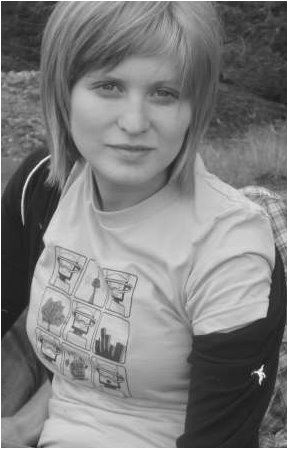There are three line-ups at the University of Waterloo which are infamously long; the one outside the Book Store at the beginning of each term, the Wednesday night wait into the Bomber, and the line-up at any one of the Tim Horton’s on campus. I wouldn’t be surprised if over the course of a year the amount of coffee sold here at UW could fill the PAC swimming pool. But it doesn’t end with just us, people everywhere are addicted to coffee. Whether it is the taste, the caffeine buzz, the style or maybe the comfort a hot cup of java can provide for you on a lonesome walk to school. But have you ever stopped and asked where this delicious drink comes from?
After working as a barista in several different cafes I thought I knew a lot about coffee. But it wasn’t until I recently watched the documentary Black Gold that my perspective changed. The movie is about Ethiopian coffee bean farmers and their struggle with poverty in the thriving global coffee market. Check it out at blackgoldmovie.com
Here are a few quick statistics from the movie:
· 2 billion cups of coffee drank worldwide/day
· The coffee market is an $80 billion/year industry (which increased $50 billion over the last 16 years)
· An Ethiopian worker makes $0.50/ day. $0.57/day increase would significantly improve their lives.
· From the farmer the coffee goes through 5 different middle men – suppliers, collectors, roasters, sellers, and retailers. We buy the coffee at a price approximately 1000 times more than what the farmers sell it at.
Global trade policies controlled by the WTO have only worsened the conditions for the farmers in Africa in recent years.
Fair Trade is a movement battling to end this corporate domination over coffee and give farmers a louder voice over the price of their labour. Fair Trade skips over the middle men empowering the farmers to develop their business and gives them money for necessities such as education for children, clean water facilities and health programs. Child labour is strictly forbidden on certified farms. They must also meet high environmental standards which protect the farmer’s health and preserve the valuable land for future generations. There is so much information about the economic dealings of Fair Trade that I unfortunately can’t get into the details here. But I do ask that you indeed research Fair Trade on your own time.
So what can you do? For starters, support companies that provide Fair Trade coffee. This means taking an avid interest in investigating where you coffee comes from. With every warm, delicious sip, take a moment and think of those who spent many hours in the hot sun working to get you your coffee. I know it may cost a little more, but honestly coffee should.
Another thing to consider is the incredible amount of waste generated by your daily large Tim Horton’s “double double”. I know we all have travel mugs so let’s make a group effort to try really hard to use them every time we get coffee.
Tuesday, October 10, 2006
Subscribe to:
Post Comments (Atom)



No comments:
Post a Comment